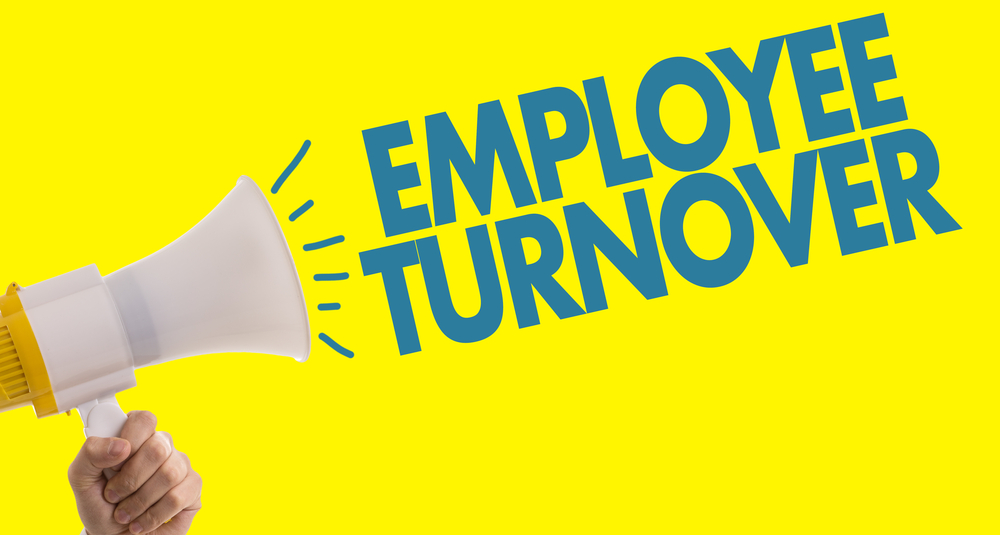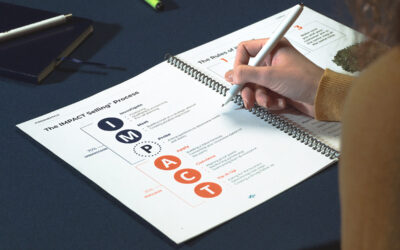For anyone who has ever thrown a dart at a dartboard, you know that finding the elusive bullseye can be a monumental challenge. Fortunately, the stakes are not that high – perhaps a beer, or some low-level ribbing, are all that is riding on the outcome.
Just How Costly Is Sales Turnover?
When hiring – and retaining – sales talent, you might say that a bit more is at risk: Nearly $100,000 of your hard-earned revenue, to be exact. That’s the cost to a company for turning over a salesperson, according to one study. With so much on the line, it’s critical to get it right. That why the Sales Research Performance Center (SPRC), powered by The Brooks Group, recently produced “The Ultimate Guide to Hiring Quota-Smashing Sales Reps,” a groundbreaking white paper to address this exact issue.
Though it may seem obvious, the razor-thin line between success and failure starts well before the first sales call. It’s during the hiring process that the rubber either hits the road – or drives into a ditch, says the SPRC. Our researchers found that less than 40 percent of sales organizations surveyed for the white paper feel they consistently hire top sales talent; even more startling, 50 percent say their sales candidate screening process allows underperforming talent to slip through.
Remember that six-figure tally, noted above? The cost of bad hires reverberates long after the errant sales professional has been shown the door. It’s a list that includes both tangible and intangible measures, including:
- Lost opportunity costs
- Lost time and energy in hiring, training, and managing
- Customer and prospect alienation
- Internal morale problems
- Hiring and re-hiring costs
- Loss of goodwill in the marketplace
- Management headaches
- Loss of resources (travel expenses, equipment, etc.)
Minimizing Sales Turnover
So how do you minimize turnover when the very nature of a sales professional means that they’ll be peddling themselves with equivalent fervor?
The key is to implement an interviewing process that dives deeper than what can be seen on the surface. Interviewers must be able to gauge a candidate on their likelihood of mastering the mechanics of value-based selling – and not simply by their personality match – in order to find those diamonds in the rough.
Other qualities that interviewers should be looking for, according to the SPRC:
A fundamental interest in sales
Though some people may be able to follow the prospect all the way to the finish line, too many people lack the clarity of focus or key values necessary for sales success.
Soft skills
It’s critical to gauge the candidate’s ability to fit with the company culture. Such soft skills include:
- Self-starting ability
- Economic drive
- Intensity
- Empathy
- Decision-making ability
- Willingness to impact the behavior of others
- Practical thinking ability
- Conceptual thinking ability
- Results orientation
- Willingness to prospect
Value structure
Simply put, how someone perceives the world around them and establishes priorities.
We find that the Brooks Talent Index – a proprietary measure we use to benchmark jobs and assess sales professionals – helps companies eliminate underperformers before they are hired. In fact, nearly 60 percent of assessment clients at The Brooks Group report that their average sales hire lasts more than 24 months; and 21 percent last more than a year.
For more insights on the cost of sales turnover to your organization, and how to stem the tide, download The Ultimate Guide to Hiring Quota-Smashing Sales Reps.
For more than 40 years, The Brooks Group has partnered with sales organizations around the globe—helping them to hire, train, coach, and develop salespeople and sales managers to reach maximum performance levels.
If we can help you set your team up for consistent sales success, let’s start a conversation.




